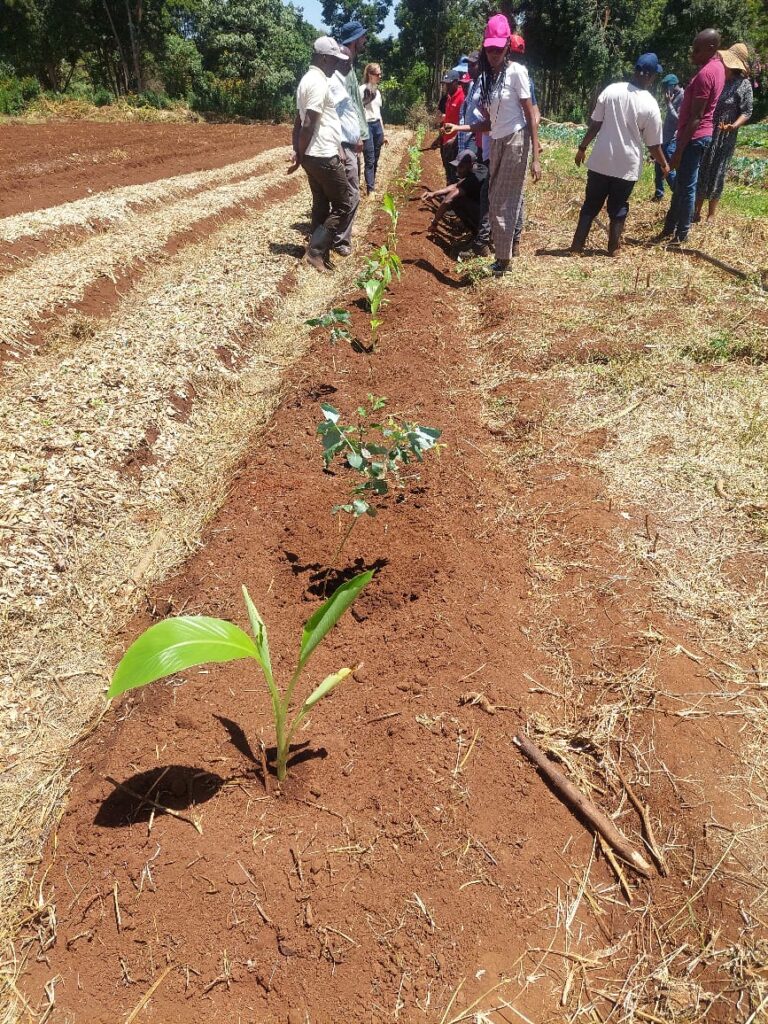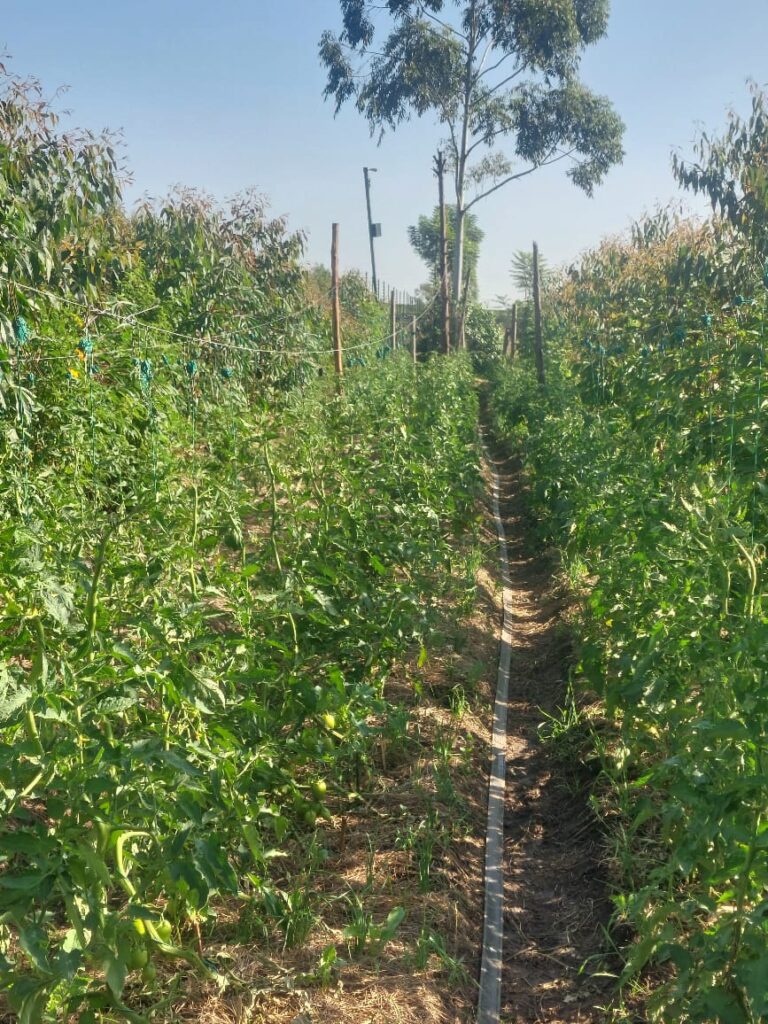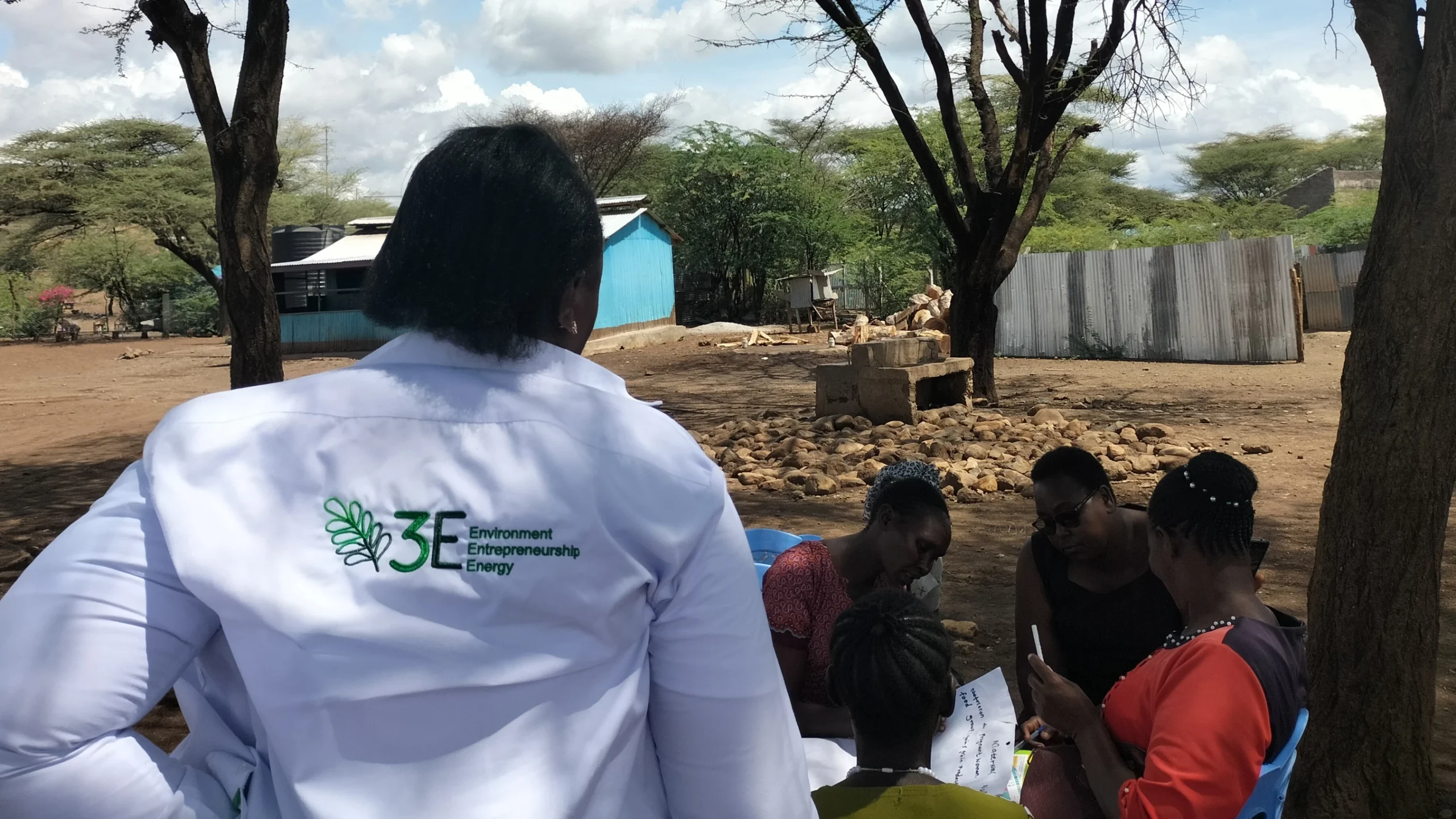Recognizing the critical need for sustainable agricultural solutions, 3E Organization recently invested in comprehensive training for its staff on the principles and practices of syntropic agriculture at Forest foods in Limuru. The company grows organic produce using regenerative farming practices .Syntropic Agriculture uses regenerative approach, which mimics natural forest ecosystems, is seen as a vital component in achieving our organization’s goals for long-term agricultural sustainability.
The training program, that was conducted at forest foods, mainly looked into the core aspects of syntropic agriculture, including:
- Biodiversity Integration: Understanding how to combine diverse plant species forest trees, fruit trees, vegetables, shrubs, herbs within a single production area.
- Ecosystem Mimicry: Learning to replicate the structure and function of natural forests to enhance soil health and ecosystem resilience.
- Biomass and Fertility Management: Mastering techniques for generating on-site biomass and fostering natural soil fertility.
- Practical Implementation: Gaining hands-on experience in designing and implementing syntropic systems
The training was important for 3E because syntropic Agriculture aligns directly with the organizations commitment to promoting sustainable and resilient agricultural practices. The organization is focused on incorporating syntropic agriculture in its training activities and initiatives in order to enhance soil health, promote biodiversity for ecological resilience, improving food security due to increase in yields and finally mitigating climate change through its ability to sequester carbon and reduce greenhouse gases emissions.
Given the diverse range of sustainable and regenerative agriculture techniques, effective implementation requires practical knowledge and skills. Building upon the 3E Africa team’s recent theoretical and practical training at Forest Food, we will prioritize sharing this expertise with our beneficiaries. This knowledge transfer initiative will focus on improving farm yields and promoting the widespread adoption of sustainable farming practices.
The training on syntropic agriculture represents a significant step towards integrating regenerative practices into our organization’s work. By embracing this innovative approach, we can contribute to building a more sustainable and profitable agricultural that not only gives high yields but also protects our environment.




